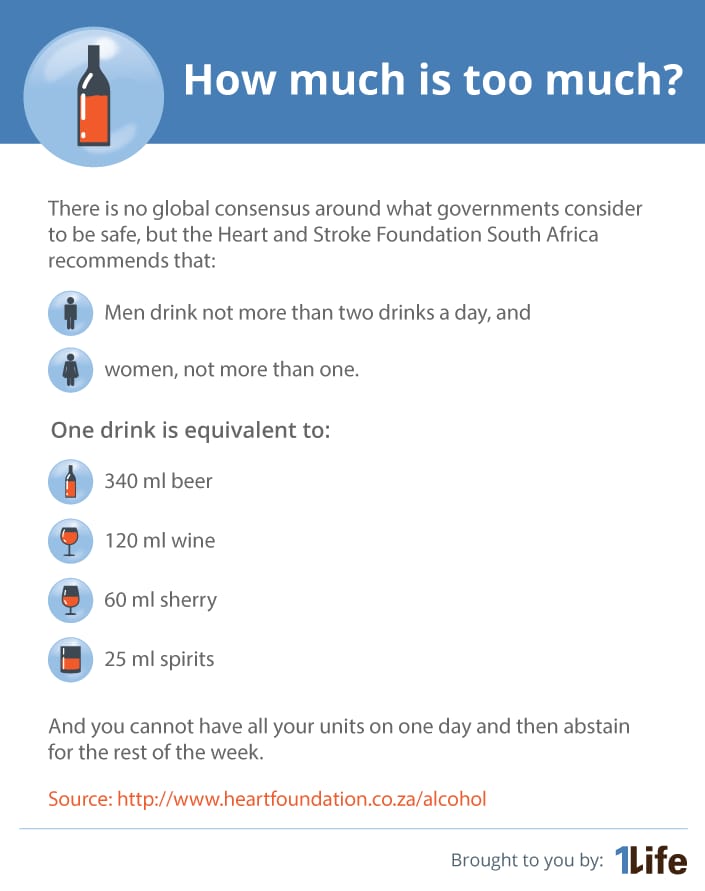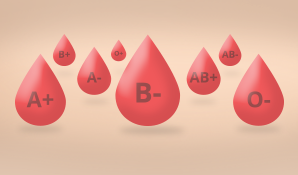A study recently published in the journal The Lancet and funded by the Bill and Melinda Gates Foundation has shown that there is no safe level of alcohol consumption. This flies in the face of a general opinion that a bit of a drink or two every now and then isn’t bad for you – and in fact, may even have health benefits.
The study found that alcohol is the seventh leading risk factor for deaths worldwide – causing 2.8 million deaths annually. Alcohol use has been linked to more than sixty chronic and acute diseases, including liver cirrhosis, cardiovascular disease and cancers.
Past studies that have shown that alcohol might have a beneficial effect have since been invalidated by this latest study, which stated that research “increasingly shows either a non-significant or no protective effect of drinking on all-cause mortality or cardiovascular outcomes.”
Simply put: alcohol does nothing positive for your overall health or for the state of your heart. “The level of alcohol consumption that minimised harm across health outcomes was zero standard drinks a week,” the study said.
This will be a bitter pill to swallow for many people, for whom drinking is a part of daily life. No one will argue that heavy drinking is healthy, but many people feel that a glass or two of wine with supper is a perfectly acceptable and even healthy approach to alcohol consumption.
We spoke to Vaughan Pankhurst, the clinical director of Recovery Direct, to find out about safe levels of consumption for South Africans.
No healthy levels of drinking“It is my personal belief system that with the damage that alcohol does, no alcohol is ever good in any way, shape or form at all,” he says. “Alcohol is not good for the cellular structure of the human body. The latest research has completely debunked the idea of a glass of wine being good for you.”
Alcohol use is associated with a higher risk of developing many different diseases, but Vaughan is equally concerned with the mental and antisocial outcomes of drinking.
“I deal extensively with people who were traumatised as children because of the alcohol abuse going on in their homes. Alcohol is often a factor in violent crime. And of the women murdered in South Africa, most are the victims of their intimate partners, and in around 65% of those deaths, alcohol abuse was involved.”
He adds that binge drinking in the student population is also very dangerous, resulting in loss of life. He believes that this is an under-reported statistic, because many deaths are attributed to self-harm or car accidents rather than the alcohol that was at the root of the incident.
An argument for abstentionIn an article published in Medium about the latest research, David Spiegelhalter, a statistician at Cambridge University in England, said that the outcomes of the study shouldn’t be used to argue that people avoid drinking altogether.
“Claiming there is no ‘safe’ level does not seem an argument for abstention. There is no safe level of driving, but governments do not recommend people avoid driving,” he said.
Vaughan agrees that people who drink a glass of wine with a good meal for the enjoyment of both probably don’t have a problem and aren’t putting their health at any extreme level of risk. But he adds that people should be very aware of why they are drinking.
If you need a glass of wine to relax when you get home, then you need to look at your lifestyle
“If your job is so stressful that you need a glass of wine to relax when you get home, then you need to look at your lifestyle,” he says.
Likewise, he says that people who need alcohol as a “social lubricant” are also potentially masking a problem. “Something is fundamentally wrong that is causing you to turn to alcohol, and that issue needs to be attended to.”
In both instances, he recommends seeking out the help of a therapist for help and support with stress and anxiety, rather than “resorting to alcohol as an anaesthetic.”
So, what then is a safe level of drinking?The Lancet study is a very recent piece of research and has not yet informed any global policies around alcohol consumption.

But bear in mind that even these moderate drinking limits are not considered perfectly safe. Even if you stick to these limits, drinking could still make you more susceptible to certain diseases or to other adverse effects of alcohol as outlined above.
Stay safeEvery day, people engage in risky behaviour. Driving or eating sweet things for example are associated with potential harm to your body. It is up to each person to make a decision about how the risks and rewards balance out. But as Vaughan recommends, always question your motives for drinking and try to gain personal insight into why you think alcohol will benefit you in that moment.




